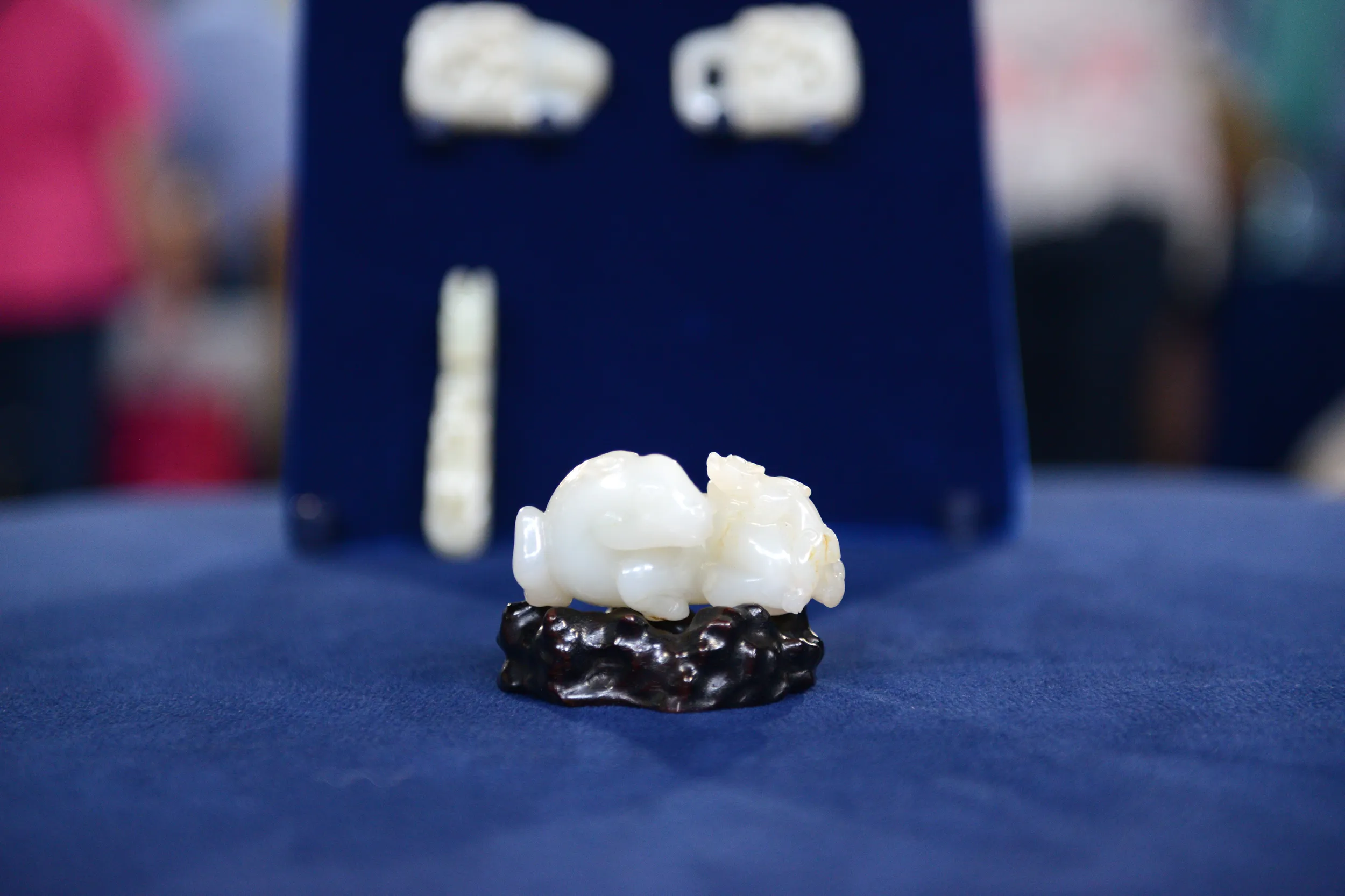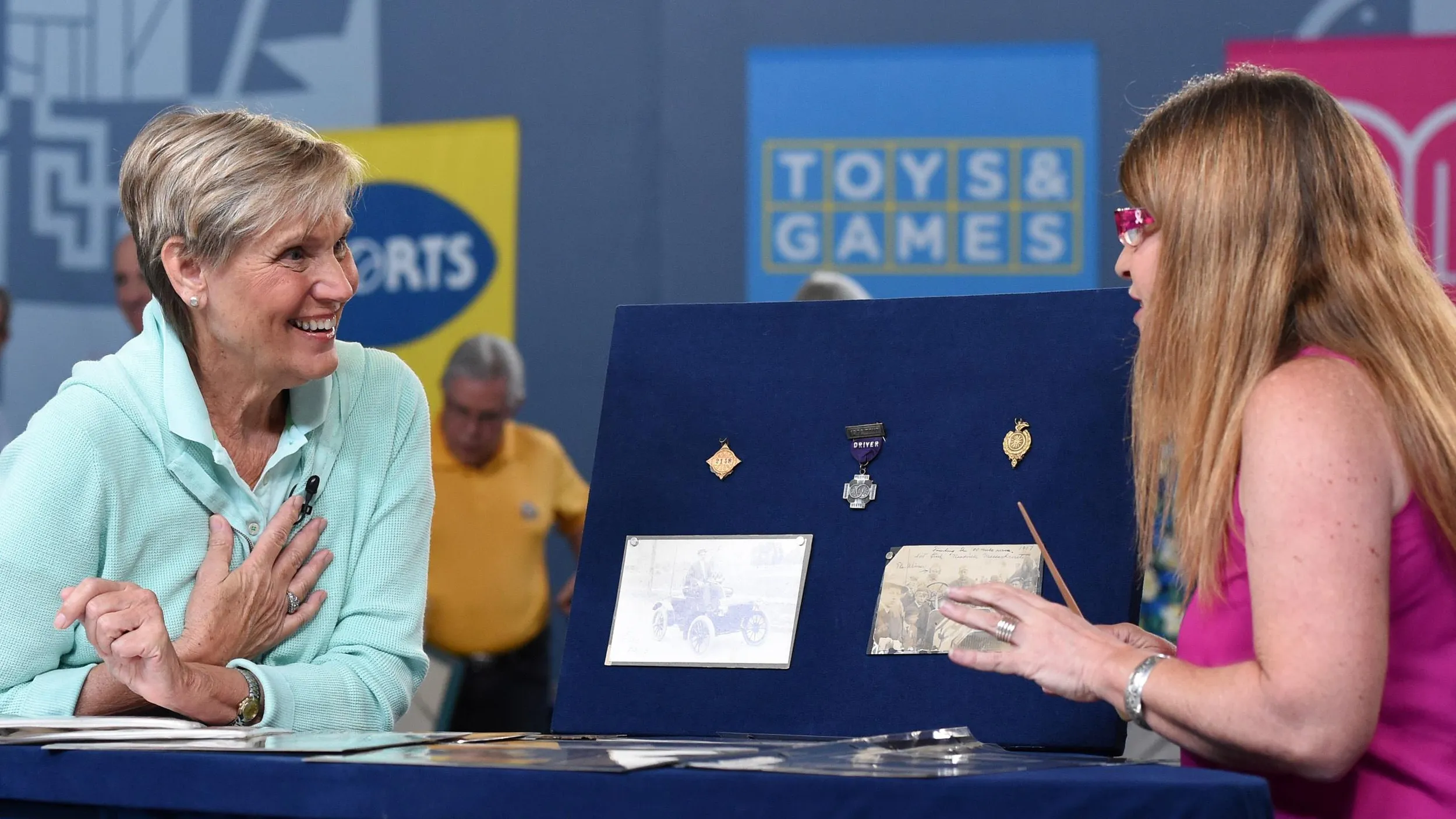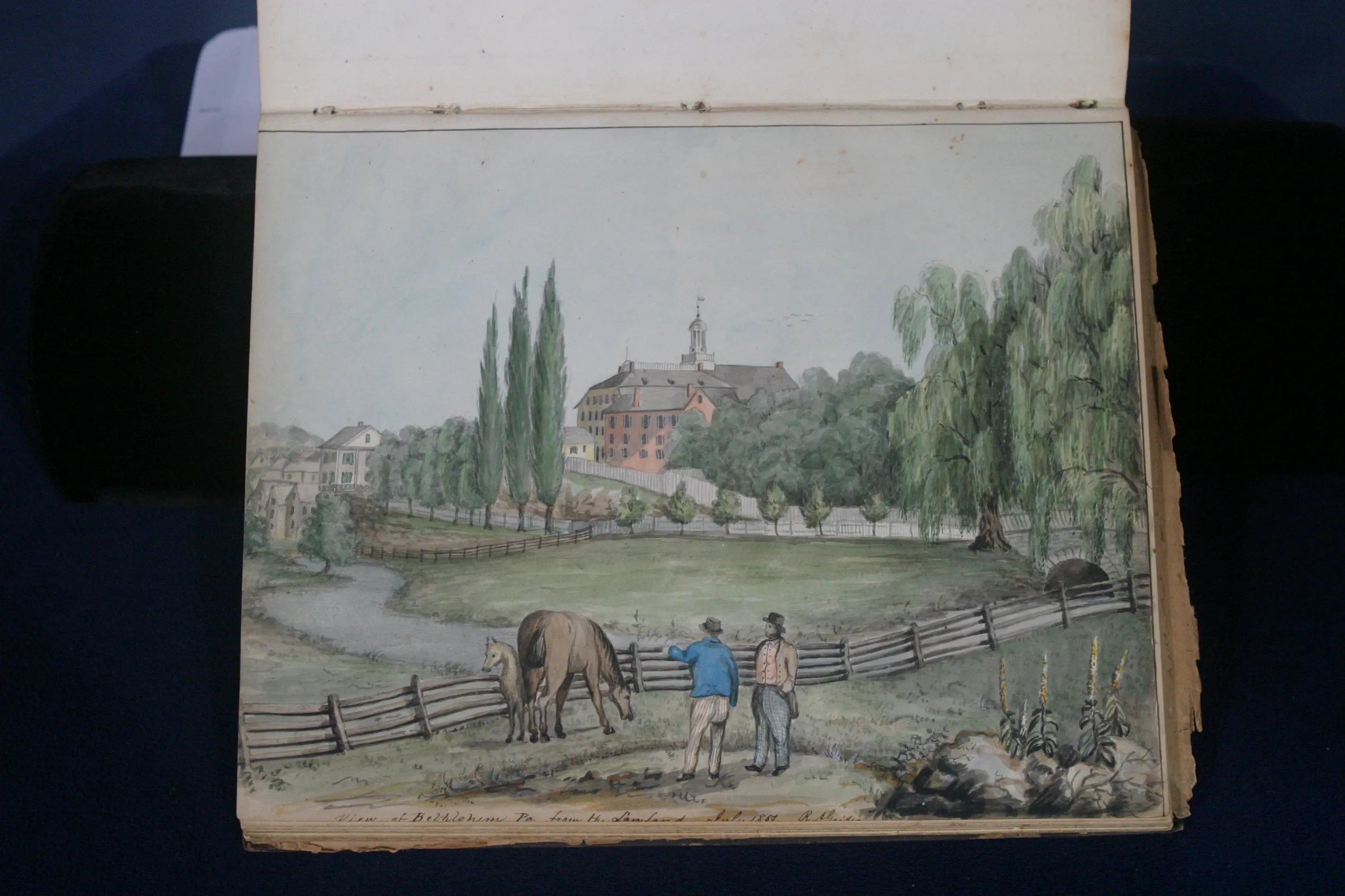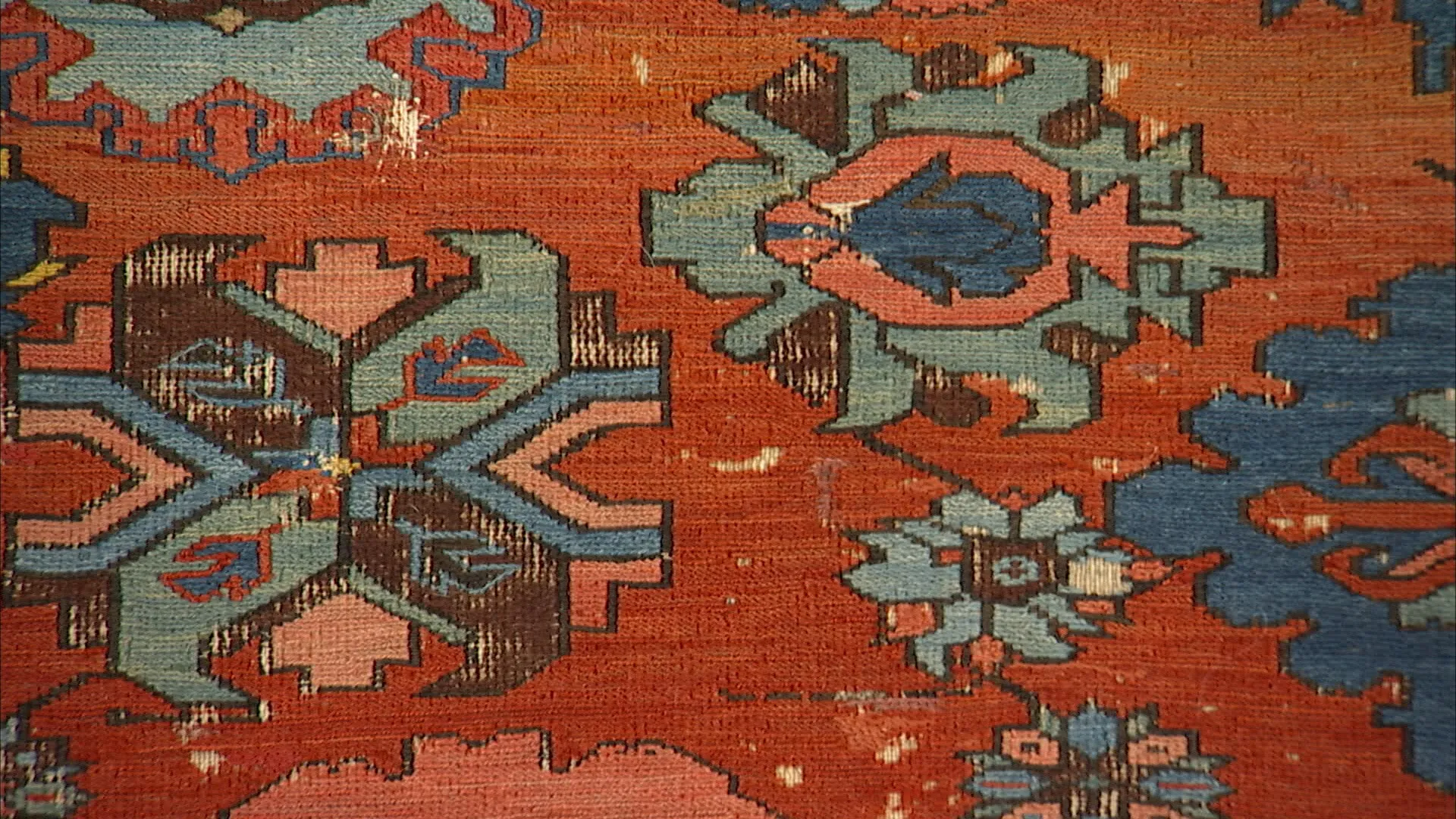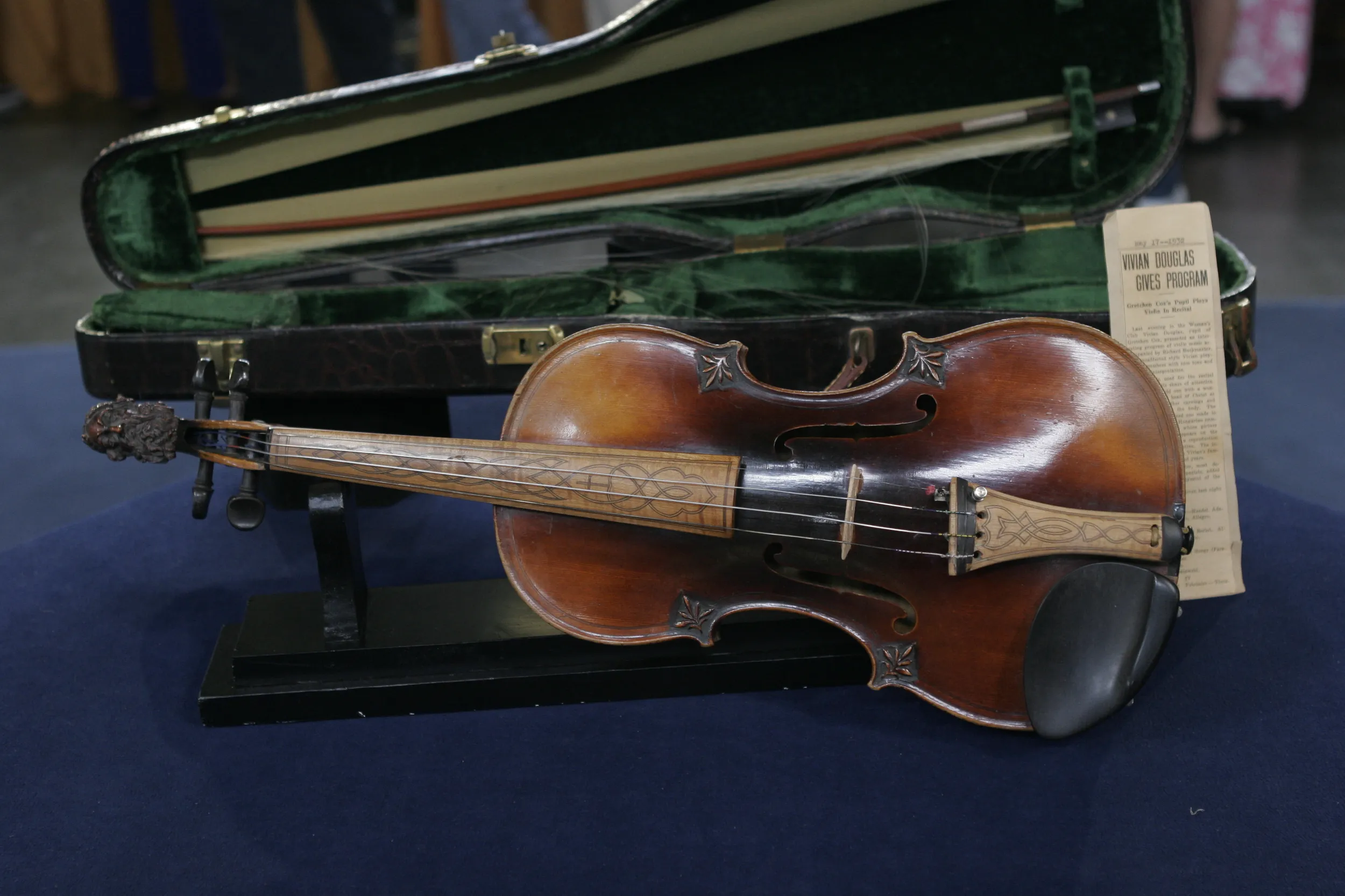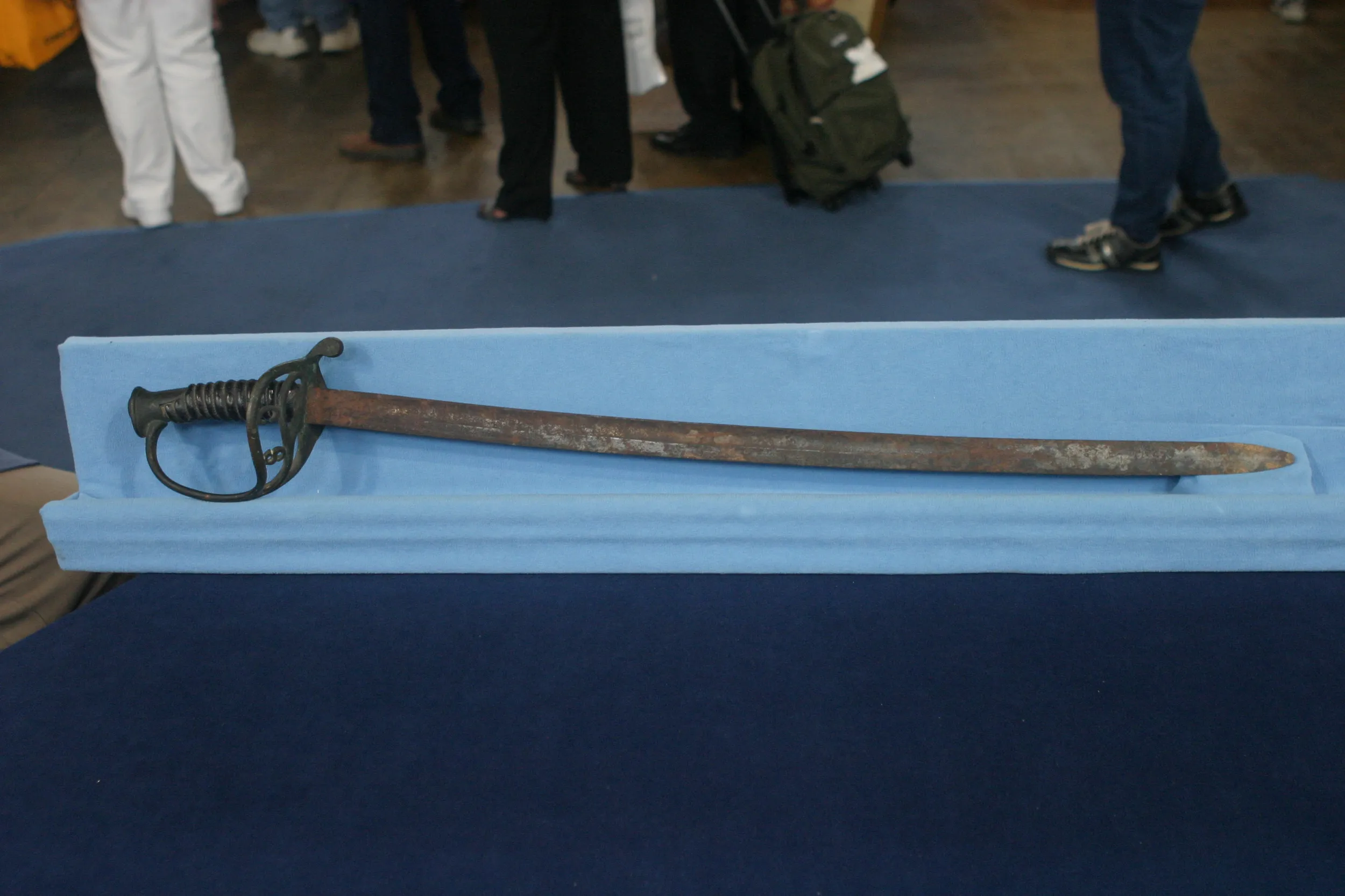GUEST: These were part of my uncle's collection. He was in China/Burma in World War II. I assume that some of these he actually brought back from China. I know later, he and his wife traveled, so he may have gotten these later in life. He passed away in February of 2015, so I inherited these. Other than knowing they're jade and from China, that's about all I know.
APPRAISER: You mention the jade. Jade is a term that's commonly used. The real term for this particular material is nephrite.
GUEST: Oh, okay.
APPRAISER: The top one is a set-- those two go together. The top group here and this here have the same function. The top one is a belt buckle, and the bottom one is also a belt buckle, which we call a belt hook. Both have dragon decorations, so these were intended for men. It's kind of generally associated as a masculine kind of emblem. It's a striking kind of buckle. You had to be a wealthy person, person of importance to wear something of that nature. Now, both of these date to the 18th or 19th century, and the fact that it's a white jade, white nephrite, that's more unusual-- therefore, something that would be of higher value than jade that does not have as pure a white color. And I don't doubt that this was purchased during the time that the gentleman was in China, a very tumultuous time at the end of World War II. People were desperate to get out of the onslaught of war, and they sold things for whatever they could to be able to escape. Now, this appears to be a ram, and it's got a little dragon climbing up on the rump, and the ram is one of the animals of the Zodiac. It's more of an ewe, really, because you don't see the horns. And it's reclining, and it's a white jade also. It's got this terrific stand, this carved wood that looks like it's a natural root form that's been purposely carved to have that appearance. But you'll also notice the details extend not just to the surface, but to the underside as well. And the coloration, the small little brown patch, that was the color of the exterior of the stone, the pebble that was carved. And on the rear, you'll see that there's an inclusion here as part of the stone. So the quality of the carving, the color, the workmanship, the stand itself, which actually dates probably to around 1900, indicate that this object was actually made in the 18th century.
GUEST: Wow.
APPRAISER: So something that is one of the animals of the Zodiac, and therefore something that would have been a presentation piece to someone on a special occasion born under that sign. An auction estimate for this group would be $40,000 to $60,000.
GUEST: Wow! Wow.
APPRAISER: This one by itself is probably in the $25,000 to $35,000 range.
GUEST: Wow. I had no idea. Thank you.

